Search
Nazli Turken, PhD
Third annual DEIB summit focuses on the meaning and metrics of belonging
Part-time MS program
Part-time MS program

How we work with Part-time MS students
We understand the unique goals of part-time students and working professionals. Whether you’re pursuing a career transition, looking to advance in your current role, or strategically navigate your MBA to support future career goals, our professional coaches and career educators will align their support to your specific needs throughout your time as a student at Carey.
Part-time Master of Science students benefit from:
-
- Throughout your program and beyond, partner with a professional career coach in a thought-provoking and creative process to help inspire and empower you in working toward your unique career and professional goals.
- Available to all students, virtual and on-site.
- Scheduled through Handshake at a pace managed by students/alumnus.
-
- Leadership coaching is offered to Flexible MBA and Part-time Master of Science students to support your leadership growth.
- Leadership coaching is a one-on-one process. Your coach will create space for you to grow and develop in an intentional way toward your leadership goals.
- Structured as a 10 session commitment, scheduled every two weeks to help you develop personal agency and cultivate leadership through authenticity.
- Exclusive to current part-time and Flexible MBA students.
- Leadership coaching appointments are scheduled through Handshake.
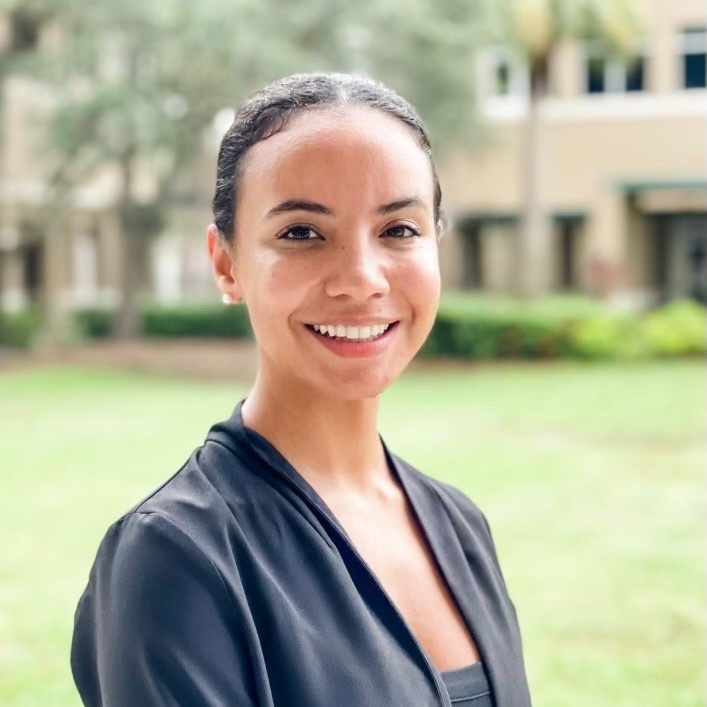
“Participating in leadership coaching with a leadership coach has been a transformative experience for me, particularly in developing my emotional intelligence in the workplace. Through bi-weekly discussions, they provided a supportive environment that allowed me to recognize areas where I needed growth such as delegating tasks with confidence, establishing clear goals for myself and team members, and empathetically approaching conversations. By addressing these areas, I’ve gained invaluable skills that have made me a more confident and well-rounded contributor, better equipped to handle the challenges of both personal and professional life. Leadership coaching has truly been a catalyst for my growth as a leader.”
Briana Thornton, Digital Media Coordinator, Oncology Nursing Society, MS Marketing '25
-
BU.001.510 Career and Life Design for Experienced Professionals provides you with an opportunity to learn and develop the necessary skills to engage in lifelong career planning. From clarifying your values and interests, exploring opportunities, and learning about professional branding, to interviewing and job search strategies, this hands-on eight-week course is here to help part-time and dual degree students at any point throughout their time at Carey.
Students who completed the course had a statistically significant increased ability to:
- Articulate their skills interests, and values as they relate to their targeted industry and job function
- Know how to craft and customize their brand through their documents, online persona, and professional conversations, such as networking and interviewing
- Use organizational systems to effectively manage their networking, internship/job search, and/or career management process
- Feel confident networking, by identifying and reaching out to industry professionals for informational interviews, attending events, striking up conversations, etc.
- Know how to anticipate and prepare for interview questions
“This class should be a b-school requirement! It was a great way to meet other students and explore possible career paths. It provided me with a dedicated time and community in which I could visualize and craft a meaningful career.”
Rhianna Taniguchi, Flexible MBA '23
Contact Career & Life Design:
Baltimore
100 International Drive
5th floor
Baltimore, MD 21202
(410) 234-9270
Carey_CLD@jh.edu
Washington, D.C.
555 Pennsylvania Avenue, NW
4th floor - Student Services Suite
Washington, D.C. 20001
(410) 234-9270
Carey_CLD@jh.edu
HCDL Projects and resources
Projects and Resources

Human Capital Development Lab
Projects
Based on current trends and input from human capital leaders, we have a number of project efforts underway. Please reach out to us if you would like more information or if you have questions about these and other areas affecting human capital development.
-
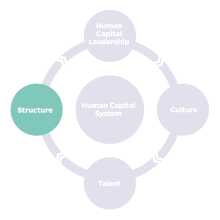
With rapid changes in the technology used for managing human capital as well as the solutions employed to develop human capital, the digital and AI area is a key priority. While ChatGPT has caught the attention of the world and individuals are learning the tool and its capability, it will take some time for regulation and firm policy to catch up to the current state of practice. The role of the CHRO is to not only embrace this new movement, but also work with business leaders to determine the parameters and guidelines for early adoption inside the firm as well as in the industry. At the same time, HR tech is changing rapidly, and CHROs must be in the driver's seat for the new technologies shaping the future of the HR function.
-
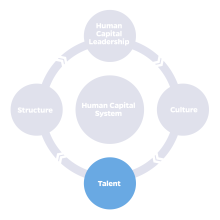
Not only have the costs associated with health care for employees risen dramatically, but employers now also understand the impact of mental health in the workplace and beyond. Beyond wellness programs, more organizations are making employee health a proactive platform, and some leading firms are addressing employee health care costs head-on, finding ways to integrate health, wellness, and cost-effectiveness for their organizations and their people.
-
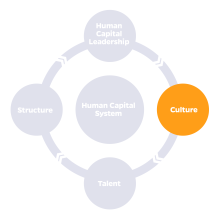
While it seems that building a great workplace culture with high levels of engagement is a flashback, current evidence suggests that most firms need to get back to basics. The pandemic changed expectations in many firms and the norms around the world. Suddenly we have navigated from the work-from-home requirement to pushing the work-from- the-office desire, while also addressing "quiet quitting” and the challenge of employee preferences for remote work. We cannot hope to transform organizations if we don’t get the basics right. Creating a great workplace with high engagement and a trusting culture is the No. 1 agenda item going forward.
-

At a macro level, we have witnessed several setbacks in education as the global pandemic limited the advancement of learning in many locations, especially in those locations without access to adequate technology. As a result, we have significant challenges ahead at a national level in many countries. At the same time, the challenge of developing new skills in workforces and building a digitally savvy employee base is a top priority for many firms. Yet, we are also reminded of the need to develop broad-based critical and creative capabilities that drive human contribution in the age of AI.
-
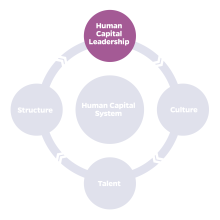
The issues associated with diversity, human rights, privacy and data security, labor rights, and a firm's sustainable global human capital footprint are key agenda items for the CHRO. These global issues may surface at a national level, but can quickly become a part of the global agenda. For example, the firm stance on LBGTQ individuals in locations such as Malaysia and the Philippines may create extra challenges in navigating global policies with local values and regulation. Investors and analysts increasingly scrutinize corporate governance in terms of board composition, top management team composition, and overall representation. Executive compensation, board roles, proper committee structures, and other governance mechanisms typically fall to the CEO and CHRO for compliance as well as buy-in. While this may be relatively straightforward in the United States, the proper governance for joint ventures, new ventures, global expansion, and new developing markets are worthy of additional CHRO focus.
7 Tips for building your network at Johns Hopkins
JD/MBA
JD/MBA

Designed for law students pursuing leadership positions in their legal careers, differentiate yourself with the JD/MBA. And gain the leadership and teaming skills to effectively manage legal teams tackling complex issues. The full-time MBA program is newly STEM-designated.
Study with full-time Johns Hopkins MBA students and develop the analytical and leadership skills employers demand. Complete your MBA from Johns Hopkins and your JD from the University of Maryland at the same time, earning both degrees in four years instead of five.
Program Details




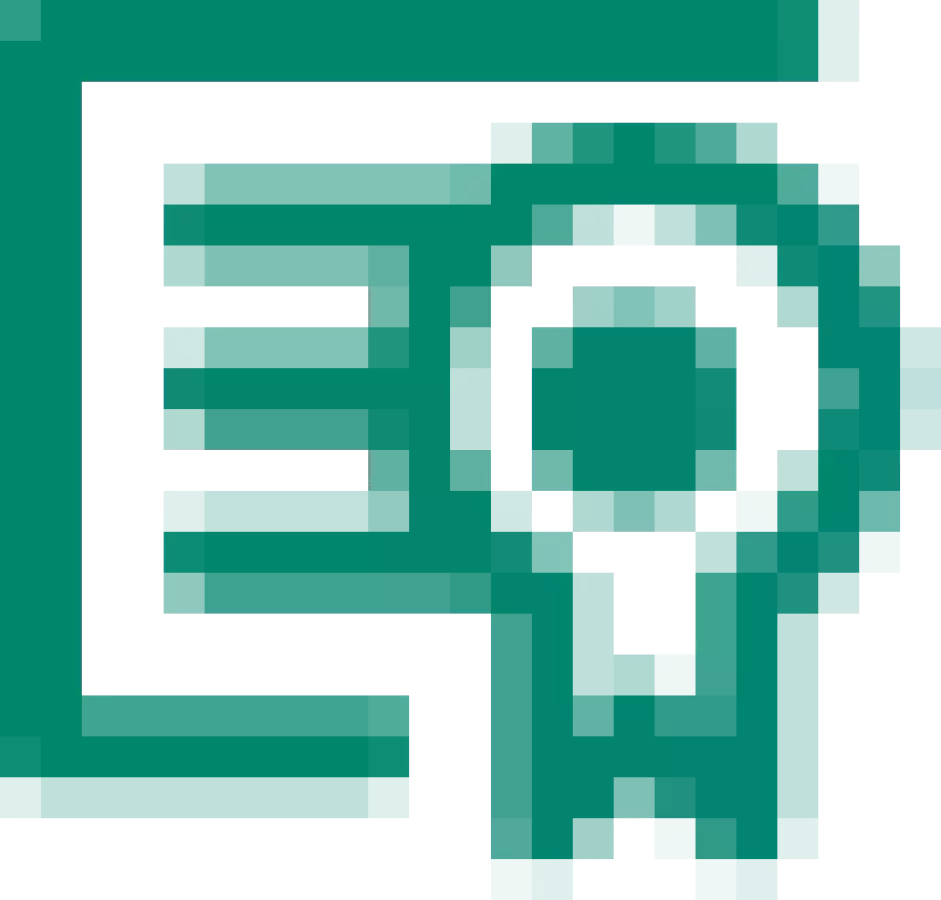
Financial Aid & Scholarships
Program features
Earn two degrees faster
By completing your MBA and JD at the same time, students earn both degrees in four years instead of five.
Differentiate yourself
As a JD armed with business skills like leadership, business development, and negotiation, you will stand out in a crowded field of recent JD graduates.
Become a leader in law
This program was designed for students who want to pursue a leadership position in the legal field.
Two premier institutions
With an MBA from Johns Hopkins and a JD from the University of Maryland, you will benefit from the combined knowledge, network, and experience of two highly respected institutions.
Curriculum
The JD/MBA curriculum was designed for students who want to pursue a leadership position in their legal careers. The MBA curriculum will equip legal students with the skills they need to effectively lead and manage legal teams.
The latest edition of the Carey Business School University Catalog is available.
-
The JD/MBA curriculum is designed so students can complete two degrees in less time. The Johns Hopkins MBA is 54 credits, 12 of which may be applied from the JD program. The JD program is 85 credits, 18 of which may be applied from the MBA. A JD/MBA student is required to complete a total of 118 credits.
Carey Business School (MBA)
- Accounting Foundations
- Behavioral Science: Leadership and Organizational Behavior
- Behavioral Science: Negotiating Collaboratively
- Business Communication
- Competitive Strategy
- Data Science: Big Consulting Data Project
- Data Science: Statistics
- Finance
- Innovation Field Project (four credits)
- Marketing Management
- Microeconomics and Market Design
- Operations Management
- Professional Development for Career Success (non-credit)
- Five electives
Francis King Carey School of Law (JD)
Visit the University of Maryland Francis King Carey School of Law website for more information.
Program Comparison
- In-person
- Complete both degrees in four years
- Courses held in Baltimore, MD
- STEM-designated MBA curriculum
- In-person
- Complete your degree in two years
- Courses held in Washington, D.C.
- STEM-designated curriculum
- Online, flexible format
- Complete your degree in two to three years
- Optional in-person experiences
- Asynchronous and/or fully synchronous courses
Signature experiences
Carey research explores impact of the pandemic on emotional wellbeing
MBA/Bachelor's in Engineering
MBA/Bachelor's in Engineering

Bridge engineering and business to ensure the next breakthrough discoveries are economically viable. Learn the leadership and management skills to stand out among your peers in the world of engineering. The MBA/Bachelor's in Engineering dual degree program is open to undergraduate students at the Johns Hopkins Whiting School of Engineering in their third year of study. The program schedule is particularly advantageous for students in the Applied Mathematics and Statistics program and the Computer Science program, but it is open to all students seeking a Bachelor's in Engineering. The full-time MBA program is newly STEM-designated.
Complete your MBA and Bachelor’s in Engineering at the same time, in five years instead of six.
Not sure which program is right for you? Compare all our degree programs at a glance.
Program Details






Financial Aid & Scholarships
Program features
Earn two degrees faster
By completing your MBA and your Bachelor’s in Engineering at the same time, students earn both degrees in five years instead of six.
Interdisciplinary approach
Breakthroughs and discoveries must be economically viable to have a lasting impact on the world. Through an interdisciplinary approach, students will learn how to bridge engineering and business.
Stand out to employers
Give yourself a leg up on your peers with an MBA from Johns Hopkins Carey Business School.
Experiential learning
Our MBA curriculum leverages experiential learning activities to develop skills like leadership, a global mindset, resilience, and entrepreneurship.
Curriculum
This program is offered through the Whiting School of Engineering and Carey Business School. Each graduate will receive two degrees, one from each school. With this program structure, students will be able to complete both bachelor’s and master’s degrees in less time than it would take to complete the degrees as separate programs. The MBA/Bachelor's in Engineering dual degree program is open to undergraduate students at the Johns Hopkins Whiting School of Engineering in their third year of study. The program schedule is particularly advantageous for students in the Applied Mathematics and Statistics program and the Computer Science program, but it is open to all students seeking a Bachelor's in Engineering.
Our full-time MBA program is now STEM-designated
The latest edition of the Carey Business School University Catalog is available.
-
Students pursuing this program begin with their bachelor’s degree courses at the Whiting School of Engineering during years one through three. In year four, students will be fully immersed in Carey Business School’s full-time MBA program and will then complete a summer internship. Year five covers the remaining course work for degrees at both schools.
The MBA program requires 54 credits encompassing all aspects of business knowledge and skills in an innovative, interdisciplinary curriculum. Engineering students must apply to the MBA in year three of their engineering degree studies. MBA courses will be taken during year four.
During the fifth year, students will complete all the requirements for both their undergraduate and MBA degrees. Much of the remaining course work for the MBA program may be completed in the evening.
Program comparison
- In-person classes
- Graduate with two Johns Hopkins degrees
- STEM-designated MBA curriculum
- Complete degrees in five years
- In-person classes
- Courses held in Baltimore, MD
- STEM-designated curriculum
- Complete degree in two years
- Online, flexible format
- Asynchronous and/or fully synchronous courses
- Optional in-person experiences
- Complete degree in two years